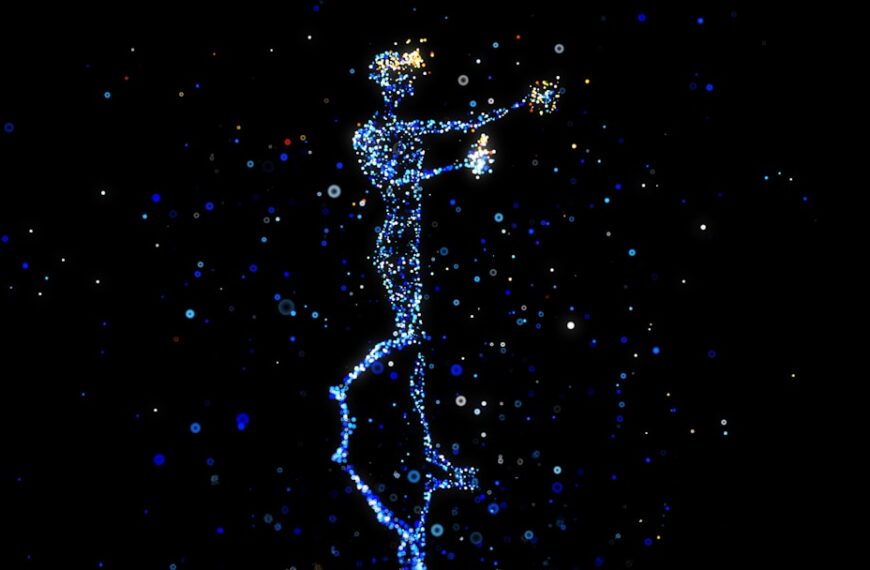Entrepreneur with a clear vision, Elon Musk is the CEO of SpaceX & Tesla and has long expressed concerns about the advancement of artificial intelligence (AI). Musk has issued numerous warnings regarding the possible risks associated with AI, claiming that if it is not properly regulated, it may endanger humanity. Musk established Neuralink, a business focused on creating brain-computer interface technology in an effort to combine artificial intelligence (AI) & human intelligence, in response to these worries. Instead of being afraid or opposed to AI, Musk is cautiously optimistic about it.
Key Takeaways
- Elon Musk envisions AI as a tool that can enhance human capabilities and solve complex problems.
- Musk’s new venture in AI development could accelerate progress in the field and lead to breakthrough innovations.
- Potential challenges and ethical considerations in AI development include privacy concerns and the risk of AI surpassing human intelligence.
- AI is being integrated into various industries, from healthcare to finance, to improve efficiency and decision-making processes.
- The integration of AI into industries may lead to job displacement and require workforce retraining to adapt to the changing landscape.
- Regulation and governance are crucial in ensuring the responsible and ethical development and use of AI.
- Elon Musk’s influence in the future of AI could lead to advancements in technology and shape the direction of AI development.
He thinks AI could be very helpful to humanity, but only if it is developed and applied properly. Safety and ethical considerations are given top priority in Musk’s vision for AI. Proactive regulation of AI development has been advocated by him, on the grounds that it is imperative to guarantee AI systems are in harmony with human values and do not harm humanity. In order for the decisions made by AI systems to be understood and trusted, Musk has also underlined the significance of developing AI in a transparent and accountable manner.
Musk has acknowledged his worries about the possible risks associated with AI, but he has also expressed excitement about the opportunities it offers. In his ideal future, artificial intelligence (AI) will be able to advance human potential, advance healthcare, and address some of the most important global issues. Musk is dedicated to making sure that artificial intelligence is developed in a way that benefits all people, & his vision for the technology strikes a balance between the possible risks and the potential rewards. The advancement of artificial intelligence may be significantly impacted by Elon Musk’s new business, Neuralink.
With the aim of establishing a direct connection between artificial intelligence (AI) systems and human brains, Neuralink is primarily concerned with developing brain-computer interface technology. With the potential to completely transform how we engage with AI, this technology will enable smooth communication & cooperation between people and machines. Neuralink has the potential to open up new avenues for AI development and application by fusing human intelligence with AI. The ability to build more sophisticated & perceptive AI systems is one way that Neuralink may influence the development of AI.
AI systems might become more intelligent and responsive if they were to directly interface with human brains in order to acquire a deeper understanding of human cognition and behavior. This may result in advances in fields like emotional intelligence, personalized learning, and natural language processing. Neural implants and advanced prosthetics are two more potential uses of Neuralink’s technology in the healthcare industry. Neuralink offers a new degree of insight into human intelligence and behavior, which could ultimately hasten the development of AI.
However, there are also worries regarding the moral ramifications of combining AI and human intelligence. Privacy, autonomy, and misuse concerns are raised by the possibility that Neuralink’s technology will make it harder to distinguish between humans & machines. As Neuralink continues to develop its brain-computer interface technology, it will be important to carefully consider these ethical implications and ensure that the technology is developed and used responsibly. Potential difficulties and moral issues need to be taken into account as Elon Musk’s artificial intelligence endeavors continue to push the envelope.
Making sure that AI development stays in line with human values and does not endanger humanity is one of the main challenges. Musk has advocated for proactive regulation of AI, but putting such a regulation into place comes with its own set of difficulties. Maintaining safety & ethical considerations in the development of AI will require careful consideration in addition to promoting innovation. The possible effects of AI on autonomy & privacy are another ethical factor to take into account.
The increasing sophistication and integration of AI systems into diverse facets of our existence carries the potential to jeopardize individual privacy. Concerns exist over the possibility that AI will violate people’s autonomy as well, especially if AI systems are allowed to make decisions in industries like finance or healthcare. It will be crucial to develop precise rules for the responsible use of AI while upholding people’s autonomy and privacy.
Also, there are moral questions about how AI might affect inequality and employment. There’s a chance that as AI develops, some jobs may become automated and cause unemployment for workers. Due to the difficulty in finding new jobs for those displaced by automation, this could worsen already-existing social inequities. It is imperative to contemplate the methods by which artificial intelligence (AI) can be advanced to mitigate these adverse effects & guarantee that the advantages of AI are distributed fairly. The way AI is incorporated into different industries has the potential to completely change how we live, work, and use technology. AI can simplify procedures, enhance decision-making, and open up new avenues for innovation in a variety of industries, including healthcare, finance, and transportation.
AI can be applied to healthcare, for instance, to help diagnose illnesses & evaluate patient data, resulting in more precise and effective patient care. Artificial Intelligence (AI) has applications in finance that help identify fraud & improve investment decision-making. AI can be applied to transportation to increase efficiency & safety in areas like traffic control and driverless vehicles. There are chances for new business models and revenue streams as a result of the incorporation of AI into numerous industries.
Businesses who are able to leverage AI’s potential can obtain a competitive advantage by streamlining their processes, providing more individualized goods & services, and adding value for their clients. Also, the integration of AI may result in new employment opportunities in fields like machine learning, data science, and AI development. The integration of AI into diverse industries is not without its difficulties, though.
Making sure AI systems are created in an accountable & transparent manner presents one difficulty. Ensuring that AI decisions are comprehensible and reliable will be imperative in sectors like healthcare and finance, where these decisions can have profound effects on people’s lives. Concerns have also been raised concerning the possibility of job displacement as AI automates some tasks. As AI is increasingly incorporated into business processes, industries will need to think carefully about how to modify their workforce and open up new job opportunities.
AI’s widespread application has important ramifications for the labor market and workforce. As AI develops, there’s a chance that some jobs will become automated and cause unemployment for some workers. Due to the ease with which routine tasks can be automated, this could have a particularly big effect on the manufacturing and transportation sectors. The integration of AI is likely to result in the creation of new job opportunities, notwithstanding the possibility that automation will replace some jobs. The requirement for workers to acquire new skills in order to stay competitive in a world that is becoming more & more automated is one possible effect on the labor market.
There will be a rising need for workers with expertise in fields like data science, machine learning, & AI development as more tasks are automated by AI. Also, workers will have the chance to specialize in fields like customer service and the creative industries, where human judgment & creativity are still crucial. The need for businesses to think about how they can modify their processes and open up new job opportunities for employees as AI becomes more ingrained in various industries has additional implications for the labor force. This might include developing new roles that make use of AI’s capabilities, retraining employees whose jobs are in danger of being automated, & encouraging an environment in their companies where learning and adaptability are valued constants. For artificial intelligence to be developed and applied responsibly, regulation and governance play a critical role.
Proactive regulation is required, as Elon Musk has underlined, to guarantee that AI systems are consistent with human values and do not endanger humanity. However, given the speed at which technology is developing, regulating AI comes with its own set of difficulties. One potential approach to regulating AI is through industry standards and best practices. Regulators can assist in making sure that AI systems give safety & ethical considerations top priority by establishing clear guidelines for how AI should be developed & used in various industries.
In addition, regulators can collaborate with industry players to create frameworks for assessing AI systems’ accountability & transparency. Government legislation is another strategy for regulating AI. Governments can play a key role in setting policies that govern how AI is developed and used within their jurisdictions. Establishing standards for the justification and explanation of AI system decisions, developing frameworks for assessing the effects of AI on employment and inequality, and defining privacy and security guidelines for data may all be part of this.
All things considered, regulation and governance play a critical role in both ensuring that the possible risks connected with AI are minimized and stimulating innovation and expansion in this quickly developing field. Artificial Intelligence has the potential to revolutionize our daily lives, careers, and technological interactions. With projects like Neuralink, Elon Musk is pushing the envelope, so his impact on AI going forwards is probably going to be massive. Musk’s vision for the ethical advancement of AI has already spurred significant discussions about the possible benefits and drawbacks of this technology. The ongoing emphasis on safety and ethical considerations in the development of AI systems is one possible future effect of Musk’s influence on AI.
Musk’s influence may increase public awareness of the possible risks connected to the unrestrained development of AI technology as he continues to push for proactive regulation of the field. Also, Musk’s efforts in the field of brain-computer interface technology may open up new avenues for human interaction with artificial intelligence. Advances in personalised learning, emotional intelligence, and natural language processing may result from Neuralink’s attempt to establish a direct connection between the human brain & AI systems. In general, Elon Musk’s impact will probably keep influencing how AI is created and applied in the future. Musk’s vision for AI holds promise for ensuring that this game-changing technology serves humanity as a whole by stressing safety, ethical considerations, and responsible regulation.
Elon Musk’s new venture into artificial intelligence has sparked a wave of speculation about the future of AI. In a related article on Tablet Jankari, the potential impact of Musk’s latest endeavor on the AI landscape is explored in depth. The article delves into the implications for industries, society, and technological advancement as a whole. To gain further insights into this significant development, read the full article here.
FAQs
What is Elon Musk’s new venture in AI?
Elon Musk’s new venture in AI is a company called Neuralink, which aims to develop implantable brain-machine interfaces to connect humans and computers.
How does Neuralink’s technology work?
Neuralink’s technology involves implanting tiny electrodes into the brain to create a direct interface with computers. This could potentially allow for the seamless integration of AI with the human brain.
What are the potential implications of Neuralink’s technology for the future of AI?
Neuralink’s technology has the potential to revolutionize the field of AI by enabling direct communication between the human brain and AI systems. This could lead to advancements in areas such as healthcare, communication, and human-computer interaction.
What are the ethical considerations surrounding Neuralink’s technology?
The development of implantable brain-machine interfaces raises ethical concerns related to privacy, consent, and the potential for misuse of the technology. It also raises questions about the implications for human identity and autonomy.
How does Neuralink’s technology fit into Elon Musk’s broader vision for the future?
Elon Musk has expressed concerns about the potential dangers of AI and has advocated for the development of technologies that can enhance human capabilities to keep pace with AI. Neuralink’s technology aligns with Musk’s vision of creating symbiotic relationships between humans and AI.



